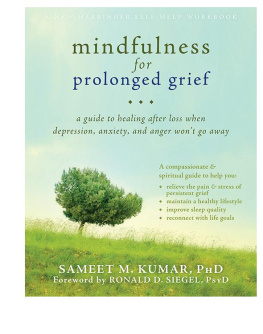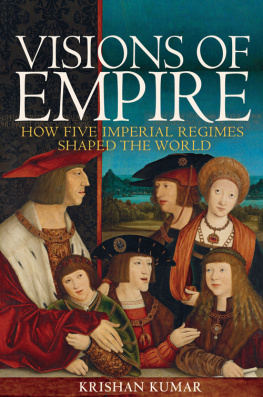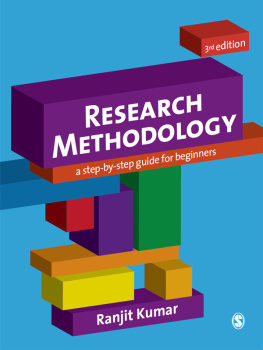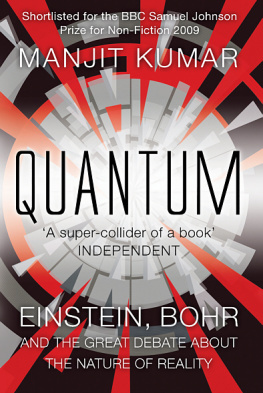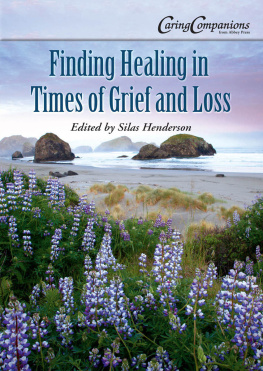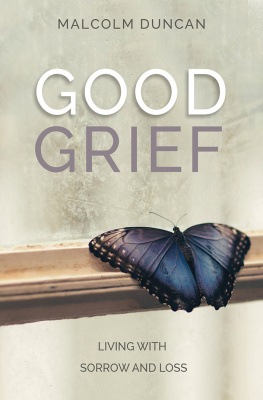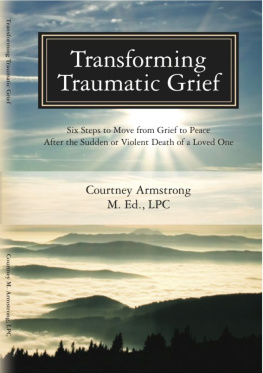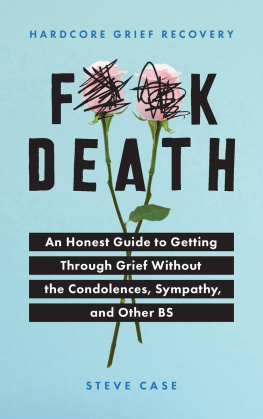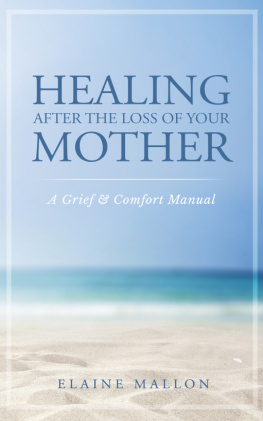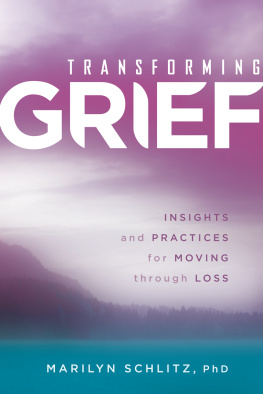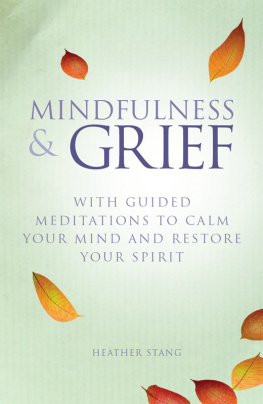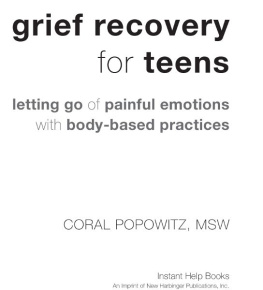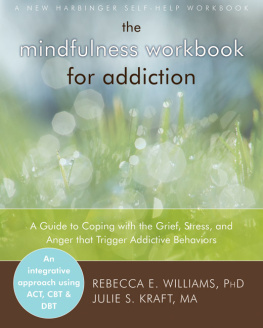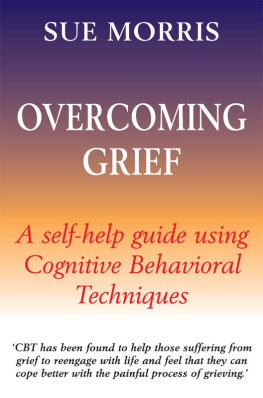
Sameet Kumars Mindfulness and Prolonged Grief Workbook is a welcome and important resource for both those struggling to cope with prolonged grief themselves and for the helping professionals who are advising and supporting them.
Sharon Salzberg, author of
Real Happiness and
LovingkindnessSameet Kumar has been working for many years as a psychologist and counselor in the field of dealing with this grief. In his wonderful new book Mindfulness and Prolonged Grief, he shares many of the approaches to inner healing that he has developed in his practice. In particular, he demonstrates how the ancient Buddhist methods of mindfulness meditation can be used to cure both body and mind when the overwhelming darkness of grief, depression, and hopelessness sets in. His book is both practical and immediate in its presentation, offering medical practitioners and patients alike a clear guide to a traditional healing technology that has worked for centuries, and is perhaps even more relevant today than ever before.
Glenn Mullin, author of
Living in the Face of Death and
The Fourteen Dalai Lamas: A Sacred Legacy of Reincarnation
Publishers Note
This publication is designed to provide accurate and authoritative information in regard to the subject matter covered. It is sold with the understanding that the publisher is not engaged in rendering psychological, financial, legal, or other professional services. If expert assistance or counseling is needed, the services of a competent professional should be sought.
Distributed in Canada by Raincoast Books
Copyright 2013 by Sameet M. Kumar
New Harbinger Publications, Inc.
5674 Shattuck Avenue
Oakland, CA 94609
www.newharbinger.com
Cover design by Amy Shoup
Text design by Michele Waters-Kermes
Acquired by Catharine Meyers
Edited by Jasmine Star
All Rights Reserved
Library of Congress Cataloging-in-Publication Data
Kumar, Sameet M.
Mindfulness for prolonged grief : a guide to healing after loss when depression, anxiety, and anger wont go away / Sameet M. Kumar, PhD.
pages cm
Includes bibliographical references.
ISBN 978-1-60882-749-7 (pbk. : alk. paper) -- ISBN 978-1-60882-750-3 (pdf e-book) -- ISBN 978-1-60882-751-0 (epub) 1. Grief. 2. Loss (Psychology) 3. Meditation--Therapeutic use. 4. Grief--Religious aspects. I. Title.
BF575.G7K863 2013
155.937--dc23
2013033444
This book is dedicated to the universal capacity for love and to all those who work to increase the unconditional love we have for each other.
Sarve mangalam. May all beings everywhere be happy.
Contents
Foreword
Many years ago I had the opportunity to visit a very unusual monastery in Thailand. In virtually every room there were human skulls, skeletons, and pictures of dead bodies. Periodically the monks performed autopsies on local people who had died and donated their bodies to the monastery. They werent studying medicine, however. Instead, the monks performed autopsies to experience in a very real way that we are all made of flesh and blood, and that we all die. While I didnt get to know the monks well, they clearly werent disturbed or depressed. Rather, they were smiling and energetic, seeming to go about their days fully engaged in the activity of the moment, appreciating life. The monks were practicing mindfulnessliving each day richly, continually aware that life on earth is a finite series of fleeting moments.
It is striking how most of us living in the developed world are surprised by death. We go about our lives thinking of reasons death happens to other people, not to us or our loved ones. So when it strikes close to home, were often overwhelmed. Sometimes our intense distress only lasts for a little while, but often enough, it lingers and can make it hard to go on living.
In this book, Sameet Kumar shows how (even without becoming a Buddhist monk) anyone suffering from prolonged grief can use mindfulness practices, combined with techniques from modern scientific psychology, to reengage with life. While many mindfulness practices originally came from Buddhist traditions, theyve been adapted over the past couple of decades by Western psychotherapists and researchers to successfully treat a wide range of psychological difficulties. The practices work by counteracting several natural tendencies of the human brain that were well suited to our survival millions of years ago on the African savanna but can make us quite unhappy today.
We humans have a very effective emergency stress-response system that we share with all other mammals. When we sense danger, our heart rate and respiration rate increase, our blood pressure goes up, and our muscles tense, helping us get ready to either fight an enemy or flee from danger. Unlike other mammals, however, we also have a remarkable capacity to thinkto review the past and anticipate the future, calculating how to maximize pleasurable experiences and avoid painful ones. In fact, this ability to think was a factor in our survival on the savanna, since we werent very fast or ferocious. So its not surprising that when we face danger today, our minds fill with frightened thoughts, imagining what may happen next and struggling to find a way to avoid pain or worse.
When we suffer a loss, this survival system can go into overdrive, disrupting our sleep and concentration and making us feel tense, anxious, or depressed. Our emergency response apparatus is kept on high alert by the upsetting thoughts that pass through our minds as we review past losses and anticipate future pain. Modern scientific research demonstrates that mindfulness practices can help us step out of the stream of thoughts passing through our minds and bring our attention back to what is actually happening in the present momentthe taste of our food, the sensations of the wind, the look of the sky, the feeling of a hug from a friend. By training the mind and brain in this way, we learn to take our negative thoughts more lightly, react to them with less distress, and become more engaged in our lives in the here and now.
Of course, even as we learn to be less trapped in negative thinking, our painful feelings usually dont go away entirely. Practicing mindfulness can also help us deal more effectively with the difficult emotions that still arise. Instead of trying to distract ourselves (which can lead to unfulfilling habits such as watching too much TV, eating excessively, shopping unnecessarily, or abusing drugs or alcohol), we discover how to ride waves of painful emotion, allowing them to come and go. We learn to appreciate that by being with rather than resisting our painful feelings, they actually become much easier to bear. In fact, we find that they pass more quickly once we can allow ourselves to feel them more fully.
Mindfulness practices also help us see that not only painful feelings, but all experiences, are constantly changing. As we learn to pay attention to what is happening in the present, we notice that no two moments are alike. Rather, we become aware of a continuous flow of changing eventsa sensation in the body, followed by a thought, an emotional reaction to that thought, and then a new experience in the body. We begin to see directly that the contents of our awareness, as well as everything around us, are in constant flux. And as this becomes clearer to us, it becomes easier to come to peace with our losses.

